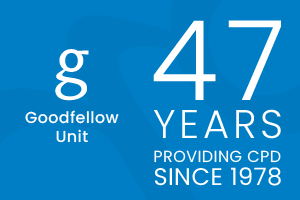
Doxycycline post exposure prophylaxis (Doxy-PEP) is a new tool to reduce the risk of syphilis and chlamydia in certain patient populations.
This MedCase discusses the use of Doxy-PEP as a preventive measure to significantly reduce the risk of syphilis and chlamydia in certain high-risk populations, particularly gay and bisexual men who have sex with men (GBMSM) and transgender women, while emphasizing the importance of comprehensive sexual health care and addressing potential concerns regarding antimicrobial resistance.
Sam, a 32-year-old cisgender man who has sex with men (MSM) and identifies as gay, presents to general practice for routine review and repeat of his HIV pre-exposure prophylaxis (HIV PrEP) prescription. Sam has been treated for both chlamydia and gonorrhoea over the last 12 months. He mentions his flatmate has recently started a pill to reduce his risk of syphilis and chlamydia.
Another friend has recently been treated for syphilis. He is wondering if the pill his flatmate is taking is an option for him.
Preventing bacterial STIs
Bacterial sexually transmitted infections (STIs) disproportionately impact gay and bisexual men who have sex with men (GBMSM).
Three large, randomised control trials among GBMSM and TGW have demonstrated 200mg of doxycycline taken within 72 hours after sex reduces syphilis and chlamydia infections by over 70%, and gonococcal infections up to 50%.2,3 This includes GBMSM individuals living with HIV. To date the evidence for cisgender women and people assigned female at birth is inconclusive. Studies in other populations are ongoing.
Determining suitability can be determined by taking a sexual history, including a history of previous STIs, and further discussion about why a patient might be seeking Doxy-PEP, including psychosocial factors.4
Patient-centred/shared decision-making communication techniques are essential. Many individuals may have experienced discrimination and stigmatisation during previous healthcare interactions.
Condoms are still the primary means of preventing bacterial STIs. Anyone who commences Doxy-PEP must also be given access to HIV PrEP or HIV care. Doxy-PEP should be prescribed in the context of a comprehensive sexual health approach including:
- risk reduction counselling
- STI screening and treatment
- vaccination including HPV
- linkage to HIV PrEP and HIV care.
Refer to the New Zealand STI guidelines for further details.
The need for Doxy-PEP can fluctuate over time, for example, some individuals may wish to use Doxy-PEP during periods of heightened STI risk such as holidays or periods of increased sexual activity.
The discussion relating to specific individual benefits versus potential harm should avoid stigmatising individuals enquiring about or taking Doxy-PEP. This includes acknowledging that significant uncertainties exist. The potential for antimicrobial resistance (AMR) should be discussed as a population issue, rather than assigning individual responsibility to Doxy-PEP users.4 This is a nuanced discussion incorporating a harm minimisation approach.
Further information for health professionals and consumers relating to Doxy-PEP is available from the Burnett Foundation.
An Aotearoa New Zealand specific position statement is available from the New Zealand Sexual Health Society (NZSHS)
Why is Doxy-PEP important in Aotearoa New Zealand?
The rate of syphilis among GBMSM in 2023 was 760/100,00 compared with 6/100,000 among the heterosexual population. Syphilis cases among GBMSM increased 45% between 2022 and 2023.
In 2023 the rates among Māori and Pacific people of syphilis were twice that of people of other ethnicities.5
Is Doxy-PEP suitable for Sam?
Doxy-PEP target populations include:
- Gay and bisexual men who have sex with men (GBMSM).
- Transgender and non-binary people (assigned male at birth) who have sex with MSM including transgender women (TGW).
Suitability considerations include:
- Proactive discussion with GBSMSM with previous diagnosis of syphilis, or two other bacteria STIs (ie. gonorrhoea, chlamydia) during the previous 12 months.
- Consider for GBMSM who identify an upcoming period of heightened STI risk.
- Consider for GBMSM with concurrent male and cisgender female sexual partners or other sexual partners with a uterus, recognising the additional health risks posed by chlamydia, gonorrhoea and syphilis for these populations.
- Consider for all GBMSM who are Māori or Pasifika given inequities in syphilis for these populations.
Sam identifies as gay and is of Māori ethnicity. He has been treated for both gonorrhoea and chlamydia in the past year.
He regularly engages in sex with casual partners, occasional chemsex, and plans to attend an upcoming pride festival in Sydney in the coming months. He may have more partners than usual during the festival.
You determine that Sam is a suitable candidate for Doxy-PEP to reduce his risk of chlamydia and syphilis
You explain to Sam Doxy-PEP may reduce his risk of chlamydia and syphilis. This involves taking 200 mg of the antibiotic doxycycline (2 tablets) within 72 hours after condomless sex.
For example, if Sam has multiple sexual partners during a weekend, a single Monday morning dose of 200mg Doxy-PEP should adequately cover their risk, rather than multiple doses over the weekend.
You explain the need for Doxy-PEP can fluctuate over time; for example, some individuals may wish to use Doxy-PEP during periods of heightened STI risk, such as holidays or periods of increased sexual activity, such as the upcoming festival they plan on attending.
Sam is wondering how effective is Doxy-PEP at preventing STIs.
The rate of syphilis among GBMSM in Aotearoa over 2023 was 760/100,00.5 Studies suggested Doxy-PEP will reduces the risk of syphilis and chlamydia by approximately 70%.2.3
Doxy-PEP is unlikely to be effective against gonorrhoea in Aotearoa as there is a high rate of tetracycline resistance.
You advise Sam that there are also other STIs not covered by Doxy-PEP and HIV PrEP.
Regular STI testing, condoms and continuing to take his HIV PrEP are still important.
What else should you discuss with Sam?
Prescription of Doxy-PEP should be undertaken in the context of comprehensive sexual health care and with counselling on the benefits and harms including side effects and antimicrobial resistance (AMR).
You review the Aotearoa STI guidelines for primary care relevant to MSM.
Sam is already taking HIV PrEP, and is already engaged with regular 3 monthly STI screening. You take the opportunity to:
- Remind Sam of the importance of condom use.
- Review his vaccination status including:
- Hepatitis A
- Hepatitis B
- HPV
- Mpox.
- Discuss recreational drug use and harm minimisation.
- Discuss and activate clinical and personal reminders for regular testing according to risk, especially if behaviours indicate the need for more frequent testing.
Sam is wondering if there are any side effects, particularly relating to his ‘gut health’
Doxycycline side effects including photosensitivity and oesophagitis. You encourage Sam to be aware of sun exposure. Also that he should take Doxy-PEP with water and remain upright for half an hour after taking it.
You check whether he is taking any supplements that could interfere with Doxy-PEP. These include calcium, iron, magnesium, and antacids such as Mylanta and Gaviscon. These should be taken 2 hours before or after taking Doxy-PEP.
You provide him with the NZF patient information handout on doxycycline for information related to side effects.
You explain to Sam there are quite a few gaps in our current understanding, and long-term use of DoxyPEP has not been studied, and that guidelines may change over time as new evidence becomes available.
The long-term risks including the impact on the microbiome (gut bateria) and antimicrobial resistance (antibiotic resistance) is unknown. This may include antibiotic resistance to STI and non-STI bacteria, making treatment of infections more difficult.
You write Sam a prescription for doxycycline and condoms
200 mg of doxycycline taken within 72 hours after condomless sex.
Doxy-PEP users should be assisted in maximising the benefits of Doxy-PEP while minimising overall antibiotic use. The recommended maximum amount of doxycycline prescribed for each 3-month period should not exceed 72 x 100mg tabs, which equates to 3 doses per week for 12 weeks.
You remind Sam that Doxy-PEP is not 100% effective and doesn’t prevent other infections such as gonorrhoea. You advise Sam to seek medical attention if he develops symptoms, and advise him to let the clinician he attends know he is taking Doxy-PEP. You ensure that there is a clear plan in his clinical notes for other team members.
The need for ongoing Doxy-PEP should be reviewed at each follow-up visit.
You book a follow-up for Sam in 3 months, which coincides with his next 3 monthly STI check and HIV PrEP review.
Note: The prescribing of doxycycline for post exposure prophylaxis is an unapproved indication for an approved medicine. Under the Medicines Act (1981) supply of an approved medicine for an unapproved use requires patient consent and must comply with the Code of Health and Disability Services Consumers' Rights.
Monitoring
People who use Doxy-PEP should have or continue to have frequent STI checks (every 3 months) including multisite chlamydia and gonorrhoea and HIV/syphilis testing.
The need for ongoing Doxy-PEP should be reviewed at each follow-up visit.
Specific considerations for STI assessment in Doxy-PEP users:
- Every time gonorrhoea is diagnosed in a Doxy-PEP user, an additional swab for culture and antibiotic susceptibilities should be requested for surveillance purposes. Discussion with a clinical microbiologist and sexual health physician is advised. Doxy-PEP use should be clearly documented on the laboratory form.
- If a Doxy-PEP user presents as a contact of syphilis or gonorrhoea they should be treated as a contact if within the window period for infection. If they present as a contact of chlamydia, re-testing outside the window period rather than presumptively treating is recommended.
- Doxy-PEP may result in an attenuated syphilis serological response, therefore any reactive syphilis serology (including EIA only) in a Doxy-PEP user should be discussed with a sexual health physician.
If you would like a summary of they key points about Doxy-PEP for use in primary care please click here.
This MedCase was created in October 2024 by Dr Danuta Amelung, BHB, MbChB, FRNZCGP, AFRACMA, Dip. Paed, PGCertWHlth, PGDipTrvMed with expert review from Dr Jeannie Oliphant, Clinical Director of the Auckland Sexual Health Regional Service.
References
Recognition of Learning Activities
Don't forget to log your time with The Royal New Zealand College of General Practitioners portal for recognition of learning activities.


